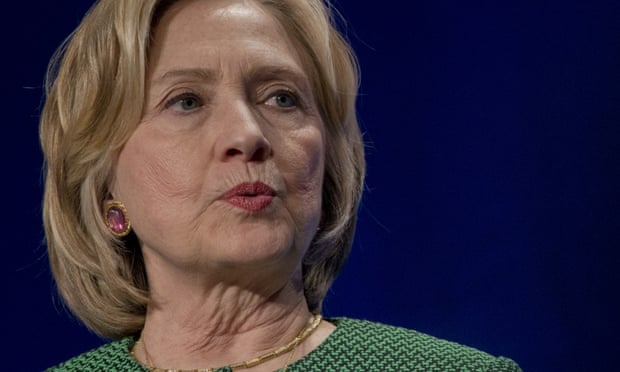Scott Gration, a former air force general who flew hundreds of sorties over Iraq, spoke to CNN from Kenya about his disappointment at losing his “dream job” as ambassador, saying: “As I look back, it does seem a bit unfair.
“It does appear that there was a different standard that was used in my case and was used in hers,” Gration said.

Gration’s remarks came as the conversation over Clinton’s use of personal email while secretary of state expanded to pull in top senators, a former secretary of state and even Bill Clinton, Hillary’s husband.
“I’m not the one to judge that. I have an opinion, but I have a bias,” Bill Clinton said in remarks reported on CNN’s website. “I shouldn’t be making news on this.”
In remarks parallel to the former president’s, Senator Dianne Feinstein, a fellow Democrat, said Hillary Clinton “needs to step up and come out and say exactly what the situation was”, adding that from “this point on, the silence is going to hurt her”. From the opposite side of the political aisle, Senate majority leader Mitch McConnell said on CBS that he was “a little bit worried about the security of those emails. They could have been prime targets for a cyber-attack.”
Former secretary of state Colin Powell, speaking on ABC, said he had used a personal email account sparingly in the job, but that it wasn’t his main account and there had never been a request that he turn anything over.
“I did not keep a cache of them,” Powell told CBS. “I did not print them off.”
Clinton’s use of a personal email account while she led the State Department has drawn accusations of a failure of transparency. Clinton supporters have said she had nothing to hide and the practice was not unusual.
Clinton herself has remained silent, apart from tweeting: “I want the public to see my email. I asked State to release them. They said they will review them for release as soon as possible.”
The State Department has said Clinton turned over “55,000 pages” of emails for review. It is unknown how many emails Clinton held back, if any.
Gration, as head of the US embassy in Kenya, chafed at rules barring him from using his Google email account, according to an internal State report which listed his “lack of adherence” to the ban as one of multiple reasons for his firing.
“I wasn’t flouting [the rule] … but I did raise some serious questions about the use of commercial accounts, because I thought they were helpful to me in my duties as ambassador to Kenya,” Gration said.
The State report makes it clear that Gration’s personal email was one small piece of larger problems with his leadership of the Nairobi embassy. The report also called Gration “divisive and ineffective” and said: “The ambassador has lost the respect and confidence of the staff to lead the mission.”
On Sunday, Gration’s displeasure at losing his job three years ago was palpable.
“For me this was a dream job,” he said. “It was a job where I felt I was making a significant difference … and to have that be terminated over some allegations that at the end were proven to be false … and to see this dream job of mine come to an end was very disappointing to me.
“And to now find out that, in reality, other people in the department, including my supervisor, were doing things differently and looking the other way – that’s hard.
“I don’t think I did anything wrong. I can’t speak for Secretary Clinton.”